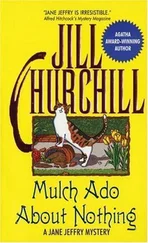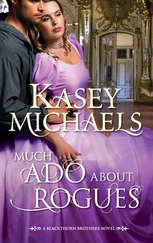Simon Hawke - Much Ado About Murder
Здесь есть возможность читать онлайн «Simon Hawke - Much Ado About Murder» весь текст электронной книги совершенно бесплатно (целиком полную версию без сокращений). В некоторых случаях можно слушать аудио, скачать через торрент в формате fb2 и присутствует краткое содержание. Жанр: Исторический детектив, на английском языке. Описание произведения, (предисловие) а так же отзывы посетителей доступны на портале библиотеки ЛибКат.
- Название:Much Ado About Murder
- Автор:
- Жанр:
- Год:неизвестен
- ISBN:нет данных
- Рейтинг книги:5 / 5. Голосов: 1
-
Избранное:Добавить в избранное
- Отзывы:
-
Ваша оценка:
- 100
- 1
- 2
- 3
- 4
- 5
Much Ado About Murder: краткое содержание, описание и аннотация
Предлагаем к чтению аннотацию, описание, краткое содержание или предисловие (зависит от того, что написал сам автор книги «Much Ado About Murder»). Если вы не нашли необходимую информацию о книге — напишите в комментариях, мы постараемся отыскать её.
Much Ado About Murder — читать онлайн бесплатно полную книгу (весь текст) целиком
Ниже представлен текст книги, разбитый по страницам. Система сохранения места последней прочитанной страницы, позволяет с удобством читать онлайн бесплатно книгу «Much Ado About Murder», без необходимости каждый раз заново искать на чём Вы остановились. Поставьте закладку, и сможете в любой момент перейти на страницу, на которой закончили чтение.
Интервал:
Закладка:
“I thank you kindly for the offer,” Smythe replied, “but I always try my best to avoid brawls whenever possible.”
“You mean to say that rather than stand up and be counted for your fellow countrymen, you would prefer to let all these foreigners ruin the livelihoods of honest Englishmen?” said Darnley, with challenge in his voice.
“Tuck has no quarrel with you, Jack,” Dickens said.
“Nay, in truth, I do not,” Smythe agreed, “but I daresay I have a quarrel with his report. For the truth of the matter is that ‘tis not the foreigners in London who are to blame for all the poverty. If the blame should rest with anyone, then it should rest with English landowners who enclose their lands for raising sheep, for as many of my fellow countrymen know all too well, wool is much more profitable in these times than produce. Only as the landed gentry fence in all their lands for grazing sheep instead of tillage, they dispossess their tenant farmers, who are thus left with no work and homeless. And so, not knowing what else they can do, they make the journey to London, desperate and seeking work, only to discover that so many more like them have come that work is difficult to find. But ‘tis not the Flemish silversmiths who take the jobs that would have gone to them, as you ought well to know, since you are an apprentice and know something of the crafts. Nor do the Italian merchants compete with them for work, nor the German shopkeepers and craftsmen, for that matter, for a simple country farmer knows nothing of such things. He knows and understands his husbandry, but for the most part, that is the compass of his world, beyond which he sails in ignorance. I suppose ‘tis possible that the occasional gypsy here or there may swindle someone, but methinks that they are much more likely to cozen a wealthy Fleming or a prosperous Italian merchant than some poor old sod begging on the street. ‘Twould be little profit there. In truth, one should think that quite the contrary to what you claim, each foreign craftsman or merchant who comes to London and opens up a shop creates an opportunity for Englishmen with no ready skills at trade or craft, for every merchant has need of assistants in his shop and every craftsman has need of apprentices.”
“I told you ‘twould be a waste of time with these two,” said McEnery, with a sneer. “An’ what with the way that this one speaks, it sounds to me more like he champions these stinking foreigners than stands up for his fellow countrymen!”
“Nay, I beg to differ,” Dickens said. “He speaks truly and I, for one, can find no fault in his discourse. If you were to venture out beyond the city walls, then you would soon find that what Tuck says is true. ‘Tis not the foreigner who dispossesses English farmers of their homes and livelihoods, but the gentleman who encloses his estate to turn his crop fields into pastureland for greater profit. These enclosures are a plague upon our poor, swelling their ranks as they fatten the purses of the gentry, and in the long run, all shall suffer from it. ‘Tis an easy thing to point your finger at the foreigners, Jack, and claim they are to blame, but ‘tis not so. You may make a scapegoat of the blameless foreigner, but ‘twill not solve the problem. On the other hand, it does give you a cry with which to rally others to your standard, does it not?” Dickens smiled mirthlessly. “You always did want to be the leader, Jack. Well, ‘twould seem you have your wish, at last. You have no need of me. And for my part, I have no need of causing pain or trouble to those who have done nothing to offend me. S’trewth, I have done enough of that already. My battlefields are left behind me. Count me out. And as for Tuck, I believe he has already given you his answer.”
Darnley compressed his lips tightly and gazed at him with cold rage in his eyes. Dickens returned that baleful look without regard for its intensity, meeting Darnley’s fury with his own insouciance. And although he tried, Darnley found that he could not stare him down.
“You players were always apt with pretty speeches,” he said contemptuously, “but try as you might, you still cannot muddy up the truth with mere words. We know who belongs here and who does not. We have eyes, and we can all see for ourselves how the foreigner prospers at the Englishman’s expense. The time has come for all good Englishmen to take a stand, and you are either with us, Ben, or else you are against us.”
“Take whatever stand you wish, Jack, for I am neither with you nor against you,” Dickens said. “What you and your friends do matters not to me, one way or another. So then, ‘twould seem that we have settled our discussion. Now Tuck and I have an appointment at the Theatre that we must keep.”
He started forward, but McEnery stood in his way defiantly, sneering at him, chin jutting forward in a challenge.
“Stand aside, Bruce,” Dickens said, softly.
“And if I should refuse? What then, eh?” McEnergy replied, finding courage in his fellow Steady Boys around him. “Do you think that you can best us all?”
Moving with smooth, deceptive speed, Dickens took Smythe’s knife, which he had held blade up, concealed alongside his inner forearm all the while, and before the startled apprentice could react, he flipped it around quickly and thrust it, edge upwards, high between McEnery’s legs. With his free hand, he seized McEnery by his belt and held him close, while pressing upwards with the knife, causing McEnery to emit a high-pitched squeak of alarm.
“You know, you may be right, Bruce. Doubtless, I would not prevail ‘gainst you all,” said Dickens, in an even tone, “but I could do for you right proper. If your lads so much as take one step toward either me or Tuck here, St. Paul ’s Boys will have themselves a new soprano for their choir.”
Darnley looked as if he were about to speak, but before he could say or do anything, Smythe reached out and spun him by the shoulder, then seized him from behind with his left arm around his neck and his right hand behind his head. When Darnley tried to struggle, he simply tightened his grip and, with a choking sound, the apprentice gave up all resistance. Smythe turned him around to face the other apprentices, who had been confident of their superiority and were now all taken by surprise at how quickly the tables had been turned.
“Be so good as to throw your clubs and dirks down in the street,” said Smythe. “And then walk away. You can return to pick them up again after we have gone.”
When the boys hesitated, Smythe once more tightened his grip.
“Do as he says!” croaked Darnley.
The clubs and knives fell to the cobbles with a clatter.
“Right. Off you go then,” Smythe said.
Slowly, truculently, the apprentices moved off.
Dickens then released McEnery. “You can go and join them, Bruce,” he said. “But mark me well now, for I give you fair warning… you come after us and I shall run you through ahead of all the others. Now run along, like a good lad.”
He waved him away and McEnery shot him a venemous look, then trotted off after his companions.
“You can go with him,” Smythe said, releasing Darnley and giving him a shove that almost sent him sprawling. Darnley stumbled, then regained his footing and turned back to gaze at Smythe with a look of intense hatred.
He inhaled raggedly and rubbed his throat. “I shan’t forget this,” he said, his voice rasping slightly. “We shall finish this another time, when you shall not have the advantage of surprise.”
“Indeed?” said Smythe. “S’trewth, I could have sworn ‘twas you who had the advantage of surprise… and numbers, come to think of it.”
Darnley spat on the street, then turned and walked away.
Читать дальшеИнтервал:
Закладка:
Похожие книги на «Much Ado About Murder»
Представляем Вашему вниманию похожие книги на «Much Ado About Murder» списком для выбора. Мы отобрали схожую по названию и смыслу литературу в надежде предоставить читателям больше вариантов отыскать новые, интересные, ещё непрочитанные произведения.
Обсуждение, отзывы о книге «Much Ado About Murder» и просто собственные мнения читателей. Оставьте ваши комментарии, напишите, что Вы думаете о произведении, его смысле или главных героях. Укажите что конкретно понравилось, а что нет, и почему Вы так считаете.












